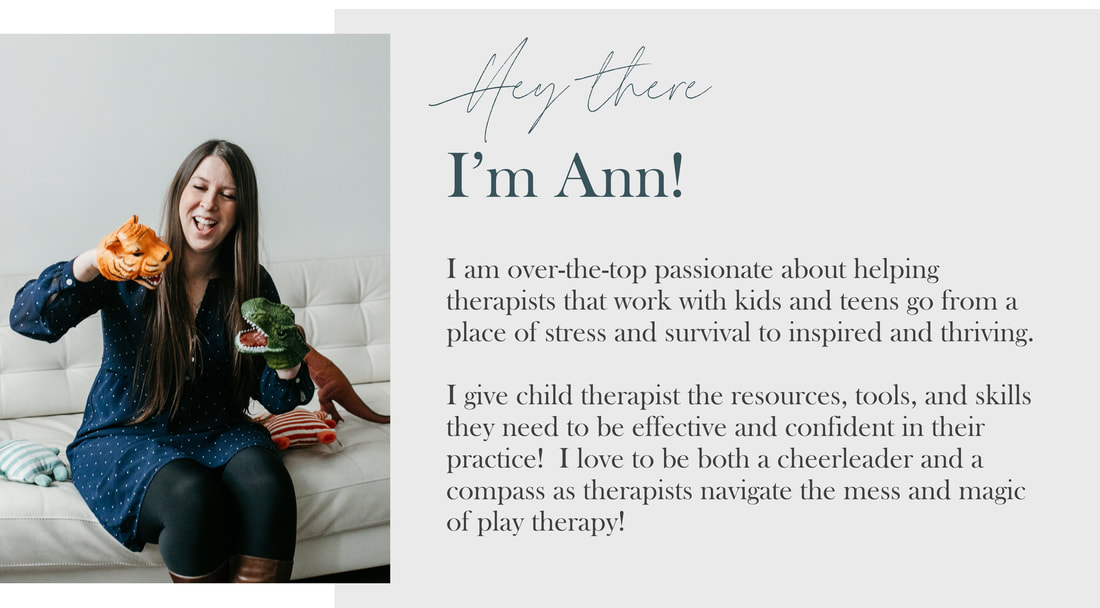Four Things Teens Are Actually Saying About Their Parents In Play Therapy And What To Do Next2/14/2024
Therapy is a safe space where teens can talk about anything.
The things that make them frustrated, that new guy that ghosted them, their friend that is totally being a jerk, the teacher that ALWAYS gives pop quizzes and yes even parents! And I have had my share of parents that feel all sorts of ways about what their teen may or may not say about them in my office. And this fear? I totally get it!
Parents are worried about being judged by their child’s therapist, being told they're wrong, and all sorts of other things that can lead to stress. And real talk? Most parents are doing the absolute best they can with what they have.
So, what are teens actually saying about their parents in session? I wanted to share the top 4 topics that come up in my teen and adolescent sessions about parents! A difference in opinions / rules / values The first is by far the most comment, which is a difference in opinions and values on topics like homework, consequences, curfew, responsibilities, and activities showing up in your playroom. You will likely get a ton of “it’s not fair” sessions because their parents wanted them to turn on their location or wouldn’t give them $50 to go out with friends. The biggest thing for this concern is to make sure that everyone is feeling heard and validated. AND validation doesn’t equal agreement (more on that HERE). Sometimes the therapy task then becomes negotiating new rules or expectations, helping create a deeper understanding of why the rules or expectations are important, how choices align with the teens values of how they show up in the world, or helping with radical acceptance of a rule or expectation and evaluating pros and cons around it. Not feeling understood It’s safe to say that when parents were teenagers it was literally a different world. Teens have pressure to stay up on social media, more access to information, and higher levels of pressure to achieve. Teens often feel like their parents “don’t get it”. And sometimes, this can be true! When this comes up in my therapy sessions I typically encourage more focus on the relationship between parent and teen. This means - spend 30 minutes a week watching your teens favorite show with them (even though you hate Stranger Things), asking them about music preferences, or grab a Starbucks and get curious about what is important to them! This will likely work best if parents are open, curious, and show unconditional positive regard. And while some teens can be shut down to some of these attempts, increased interest, focus, and attention will likely do wonders for the attachment relationship. Not feeling valued Ohhh this is a good one! If we reflect on how much validation, encouragement, and support young people got when they were 2, 3, or 4 that amount significantly plummets in the teen years. AND for good reason! There is more independence that a teen is able to have, and therefore, unfortunately can be taken for granted some times! This can sound like “she never thanks me when I empty the dishwasher” or “I got all A’s except one B and he is focused on what I did “wrong” to get the B!”. So although teens can brush their own teeth, yield a vacuum cleaner with precision (okay maybe not), and babysit their siblings, it doesn’t mean that support, validation, and thankfulness can just go out the window! A lot of times in therapy this can look like challenging parents to be mindful about how often they are showing gratitude, reinforcement, and positive praise in their relationship and getting curious about how they can turn up the dial! For other teens it is hard to take in positivity and it unfortunately is filtered out. For these teens it might help for parents to develop a specific starter phrase when they are using praise AND to review examples of how awesome their teen was during the therapy session! Fears in the relationship One of the last most common issues that come up are fears about the impact of a teens thoughts, desires, or choices on the relationship. This may be teens that are experimenting with drugs or alcohol, got in trouble at school, or don’t want to go to the college their parents want for them, and are afraid their parents will be upset and angry. And sometimes, well, their parents are going to be upset and angry. However, most often that anger and loss of trust grows when hiding and deceit enter the equation. For these teens, it’s great to focus on brainstorming all of the potential options, weighing pros and cons, and empowering choice! What I have learned most in my years as a therapist is that teens are gunna to do what their gunna do. Therapy is all about helping them make an informed choice by assessing outcomes and processing their values. Also - full disclaimer here - this has to do with things that are not a mandated report or a requirement to breach confidentiality to parents. That’s a whole different topic! So there you have it! The top four teen issues with parents in my practice and what you can do next! If you are looking for more support in your work with teens and tweens in the playroom check out my course Growing Out Of The Playroom: Teens and Tweens in Play Therapy! This course is PACKED with over 25 interventions to use with teens and tweens in the playroom! Loading...
0 Comments
Leave a Reply. |
Hi, there!I'm Ann Meehan, an LPCC, Loading... Archives
July 2024
Categories
All
|
Privacy Policies | Terms of Use | Disclaimer
Contact
[email protected] | Copyright Meehan Mental Health Services 2022
Contact
[email protected] | Copyright Meehan Mental Health Services 2022







